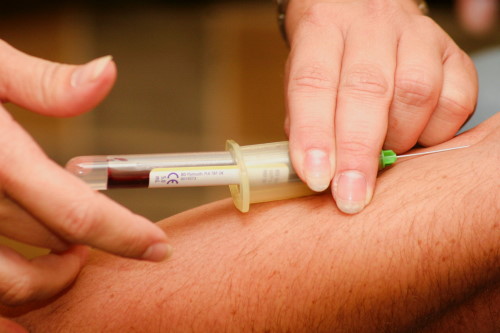A new American Heart Association survey found that heart attack and stroke survivors were unfamiliar with a key cholesterol clue.
LDL cholesterol, often dubbed “bad cholesterol,” quietly—yet persistently—poses a significant threat to cardiovascular health.
BREAKING: This Keeps Your Blood Sugar Below 100 - Even When You're Eating Sweets!
A recent 2023 survey by the American Heart Association (AHA) and the Harris Poll spotlights a concerning gap in awareness, particularly among those who have already faced the daunting journey of heart attacks and strokes. A striking 70% of survivors, the survey reveals, are unaware of the term “bad cholesterol” and its implications, highlighting a critical disconnect in public knowledge and an urgent need for widespread education and proactive health management.
The survey results
Cholesterol is a waxy substance that’s created by your liver and can also be introduced to your body through certain foods, particularly animal sources like meat and full-fat dairy products. Cholesterol travels through your bloodstream, attached to lipoproteins. There are two main types of these lipoproteins: high-density lipoproteins (HDL)—known as “good” cholesterol—and low-density lipoproteins (LDL), or “bad” cholesterol. Together with triglycerides, these form your total cholesterol level, according to the AHA.
But Joseph C. Wu, MD, PHD, FAHA, current president of the American Heart Association, shares concerning insight in a news release: “There’s a pervasive lack of public awareness and understanding around bad cholesterol and its impact on your cardiovascular health. As bad cholesterol usually has no symptoms, we often find that many patients are walking around without knowing they’re at risk or how to mitigate it.”
Elevated LDL cholesterol can lead to the formation of fatty deposits, or plaques, in arteries, thereby increasing the risk of heart attacks and strokes. The AHA survey found that while 75% of heart attack and stroke survivors reported having high cholesterol, only 49% recognized the need to prioritize lowering it. Moreover, 47% of survivors are unaware of their LDL number despite its crucial role in preventing additional cardiovascular events.
What this means for you
Donald M. Lloyd-Jones, M.D., Sc.M., FAHA, past president of the American Heart Association and chair of the department of preventive medicine at Northwestern Medicine, provides a clear guideline about cholesterol management, stating, “At the [AHA], we recommend that all adults 20 [years old] or older should have their cholesterol checked every four to six years as long as their risk remains low.”
Dr. Lloyd-Jones explains that, after a patient turns 40, healthcare professionals should use a specific calculation to evaluate an individual’s 10-year risk of having a heart attack or stroke, and those with a history of such events may need to have their cholesterol checked more frequently.
Dr. Lloyd-Jones also emphasizes the critical role of knowledge in managing health, noting, “This is very much a case where knowledge is power. The more you know, the more you can do to decrease your risk of heart attack and stroke in the future.”
Ways to lower your cholesterol
Navigating the path to reduced cholesterol begins with mindful eating. The AHA recommends following a diet that’s rich in fruits, vegetables, whole grains, poultry, fish, and nuts while minimizing red meat and full-fat dairy. Keeping a keen eye on fat intake, mainly by reducing saturated fat to under 6% of daily calories and minimizing trans fat, is also essential.
TRENDING: Detox The Body Today, Try This
Incorporating at least 150 minutes of moderate-intensity aerobic exercise weekly, such as brisk walking or swimming can significantly impact cholesterol levels and overall cardiovascular health. Also, for smokers, quitting is important.
Additionally, a modest weight loss of 5% to 10% can improve cholesterol levels. Always remember to consult with your healthcare provider for advice on lowering your cholesterol and regarding any cholesterol-lowering medications to ensure a tailored, effective, and safe approach to managing your levels.








